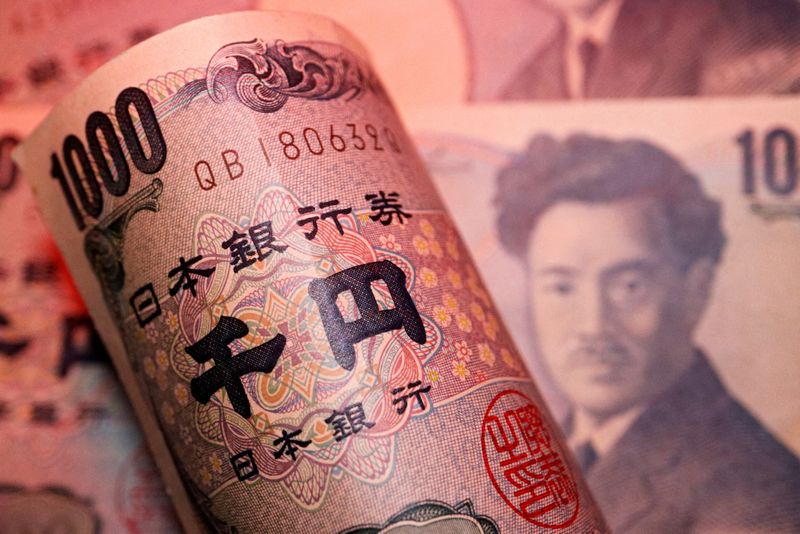LONDON/SINGAPORE (Reuters) – The yen fell to an over one-month low on Friday after the Bank of Japan (BOJ) stood pat on interest rates and said it would trim bond buying, while the euro, mired in a political turmoil, was headed for its biggest weekly fall in two months.
The BOJ said at the conclusion of its two-day policy meeting it would continue to buy government bonds at the existing pace for now, and lay out details of its tapering plan at its July policy meeting.
The dollar gained as much as 0.8% to 158.255 on the yen, putting the yen at its weakest in more than a month. The dollar was last up 0.4% at 157.61 against the yen.
“The yen is weaker today understandably given the BOJ has once again failed to meet market (and our) expectations that had moved to expecting the commencement of a slower pace of purchases of (government bonds),” currency analysts at MUFG said in a note.
“It is more significant from a signalling perspective and again underlines BoJ caution that raises expectations of a ‘go-slow’ reversal of the BOJ’s ultra-easy stance,” they added.
BOJ governor Kazuo Ueda said at a briefing after the meeting that the central bank was “paying close attention” to the impact of the weak yen on inflation, adding that a rate hike in July was a possibility depending on economic data.
Japan’s chief cabinet secretary Yoshimasa Hayashi separately said the government was closely monitoring the currency market.
In the broader market, the dollar was on the front foot, helped by gains against the euro and safe-haven bids as France’s snap election call stoked fears of political uncertainty in the country and the wider euro zone bloc.
The dollar index, which tracks the greenback against six major peers, gained 0.3% to 105.51, its highest in a month.
U.S. employment data on Thursday added to bets the Federal Reserve could kick off its easing cycle in September, but analysts said the euro’s weakness was the main factor driving currency markets this week.
The euro was headed for a 1% weekly decline versus the dollar, its biggest weekly fall in two months. It was last down 0.4% at $1.069450 on Friday.
The single currency has weakened across the board this week. It fell to its lowest on the Swiss franc in three months on the day, down 0.4% at 0.956.

“Macron’s party suffered a substantial setback in the European elections, and unfavourable results in the upcoming elections could exacerbate concerns regarding the sustainability of the country’s debt,” said Erik-Jan van Harn, senior macro strategist at Rabobank.
Sterling fell 0.3% to $1.27245 versus the dollar.
To read the full article, Click Here

